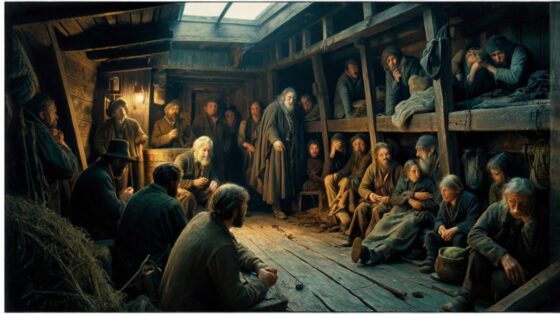Brooklyn, as we know it today, is an incredibly diverse borough, home to millions of people from all over the world. But long before the borough became a vibrant, multicultural community, it was settled by the Dutch and English during the colonial era. If you’re tracing your family roots in Brooklyn, you may find that some of your ancestors were part of this early colonial history. But how do you go about uncovering these early settlers, especially if you’ve reached a brick wall in your genealogical research?
In this post, we’ll dive into the history of Dutch and English settlers in Brooklyn, and I’ll provide you with the tools and resources to help break through that research barrier. We’ll focus on identifying important historical events, the ethnic groups involved, and the timeframes that may help you narrow down your search and uncover vital information for your family history.
Early Settlement of Brooklyn: The Dutch Influence
The history of Brooklyn starts with its Dutch settlers in the early 1600s. The Dutch West India Company, a trading company, established the colony of New Netherland, which spanned parts of modern-day New York, New Jersey, and Connecticut. Brooklyn was originally part of this larger colony.
In 1636, the Dutch founded a settlement called “Breuckelen,” which is how Brooklyn got its name. The early Dutch settlers were primarily farmers and traders who arrived in search of opportunities to grow crops, raise livestock, and build a new life in the New World. Many of these early settlers came from the Dutch provinces of Holland, Zeeland, and Utrecht.
For those with Dutch ancestry, genealogical research can be particularly rewarding. Early Dutch settlers in Brooklyn, often referred to as “New Netherland colonists,” kept detailed records of their land grants, marriages, and property transactions. Some records from this era are still preserved, and it’s worth looking into these as a way to track your Dutch ancestors.
Key Timeline of Dutch Settlers in Brooklyn:
- 1624-1664: Dutch settlers in New Netherland.
- 1636: Establishment of the settlement of Breuckelen (modern-day Brooklyn).
- 1664: English takeover of New Netherland, renaming it New York. Many Dutch settlers remained in the area under English rule.
Research Tips:
- Look into records such as the Dutch Church records in New Amsterdam (modern-day Manhattan), which include baptismal, marriage, and burial information.
- Explore land patents and wills, which can provide clues about where your ancestors lived and their occupations.
- Dutch surnames are often a rich source of genealogical information. Some families retained traditional Dutch naming conventions for several generations, even after English rule was established.
English Settlers and the Changing Landscape
In 1664, the English seized control of New Netherland from the Dutch. Under English rule, the region was renamed New York, and its population began to change. The English settlers who followed in the wake of the Dutch were part of a broader wave of migration from England, particularly in the late 1600s and early 1700s.
The English were drawn to Brooklyn by its fertile land, proximity to New York Harbor, and growing commercial potential. Early English families in Brooklyn were involved in farming, fishing, and trade. Many were established landowners or became influential figures in the region, with some even receiving royal grants for land.
By the early 18th century, Brooklyn had developed a reputation as a rural haven just outside the bustling city of New York. English-speaking families, many of whom were descendants of Puritans, Quakers, or Anglicans, formed the majority of the population. If you’re researching English ancestors in Brooklyn, keep in mind the broader historical context of this period—the rise of the British colonial empire, the Atlantic slave trade, and the American Revolution.
Key Timeline of English Settlers in Brooklyn:
- 1664: The English take control of New Netherland and rename it New York.
- 1670s-1700s: The influx of English settlers begins in earnest.
- 1700-1750: Brooklyn begins to grow into a key agricultural and commercial center, attracting more English settlers.
Research Tips:
- English settlers often recorded their activities in legal documents such as land deeds, wills, and court records.
- The Anglican Church records (in Brooklyn and Manhattan) and the records of the Church of England may provide valuable information on English settlers, including baptismal, marriage, and burial details.
Important Historical Events: Key Moments in Brooklyn’s Colonial History
Several key historical events shaped the lives of both Dutch and English settlers in Brooklyn. Understanding these events can help you identify when your ancestors may have arrived, moved, or made key decisions that impacted their family history. Below are some critical events to consider:
- The English Takeover of New Netherland (1664): The shift in political control from the Dutch to the English had significant consequences. The change in governance impacted land ownership and property rights, which could be crucial in your ancestor research. Look for records from this period that document the transition in Brooklyn and surrounding areas.
- The American Revolution (1775-1783): Many Dutch and English families in Brooklyn played a role in the American Revolution, either as loyalists to the British or patriots fighting for independence. If your ancestors were involved, you may be able to trace them through military records, such as service records or pension files, which provide insight into their experiences during the war.
- The 1810s-1820s: Brooklyn’s Urbanization: After the revolution, Brooklyn began to grow more rapidly, with many Dutch and English descendants moving into what was once rural farmland. Some may have left behind family records in this period, such as business ledgers or local newspapers that were active during this time.
Research Tips:
- Explore military and veteran records, especially if you suspect your ancestors were involved in the American Revolution or the War of 1812.
- Local Brooklyn newspapers from the 18th and 19th centuries may contain personal announcements, obituaries, or ads related to your ancestors.
Final Thoughts and Next Steps
Researching colonial-era ancestors in Brooklyn can be challenging but deeply rewarding. By understanding the history of Dutch and English settlers, you can begin to piece together the stories of your own family. Whether your ancestors were farmers, tradesmen, or military participants, there are many records available to help you on your journey.
If you’ve reached a brick wall in your research, I’m here to help. At Brooklyn Ancestry, I specialize in uncovering the hidden histories of colonial-era families. If you’re struggling to find the right records or need help interpreting what you’ve uncovered, don’t hesitate to reach out for personalized genealogical research assistance.


